

Street Games(NaN)
Several days in the lives, and profiles of, the owners and players of the open air street chess tables in downtown San Francisco. An informative and insightful portrait of a freely public, yet effectively anonymous, subculture: a unique and colorful patch of eccentric americana in the urban quilt of an international city. —Anonymous
Movie: Street Games

Street Games
HomePage
Overview
Several days in the lives, and profiles of, the owners and players of the open air street chess tables in downtown San Francisco. An informative and insightful portrait of a freely public, yet effectively anonymous, subculture: a unique and colorful patch of eccentric americana in the urban quilt of an international city. —Anonymous
Release Date
Average
0
Rating:
0.0 startsTagline
Genres
Languages:
Keywords
Similar Movies
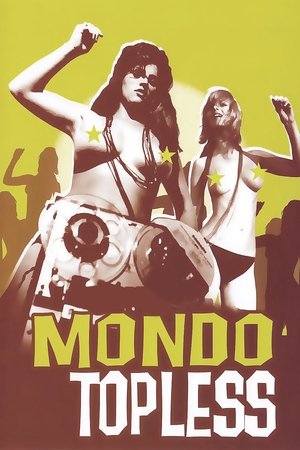 4.6
4.6Mondo Topless(en)
Completely topless. Completely uninhibited. The craze that began in San Francisco is now exploding across the USA and Europe.
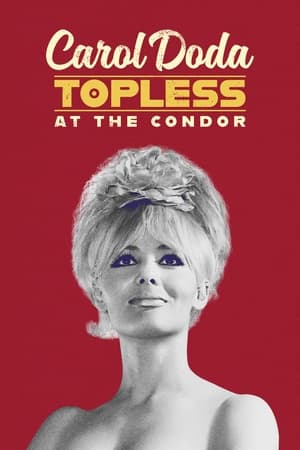 7.0
7.0Carol Doda Topless at the Condor(en)
On a fateful San Francisco night in the early '60s, Condor nightclub performer Carol Doda was lowered to the stage on a floating piano, topless. Word spread quickly, setting off a wave of controversy and delight, with raids soon to follow. There was even a trial for the new celebrity. Doda's dry wit and charisma made her an instant sensation of the night club scene: an empowered woman in full control. Or so it seemed.
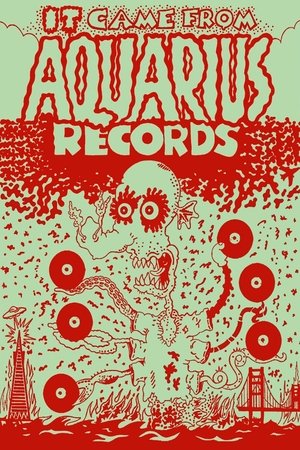 8.0
8.0It Came From Aquarius Records(en)
IT CAME FROM AQUARIUS RECORDS tells the story about the San Francisco based independent record store, Aquarius Records. Having closed in 2016 after 47 years, this small apartment-sized store championed local, underground, independent, and challenging music to the masses - most memorably with their infamous bi-weekly, college essay-length, new-release lists. Six years in the making, interviewing collectors, musicians, and store owners, the film has a very personal angle, with lots of behind-the-scenes footage (and drama) that shows both the joy and excruciating stress that comes with running — and closing — a store like this, helped in no part by the changing city around them.
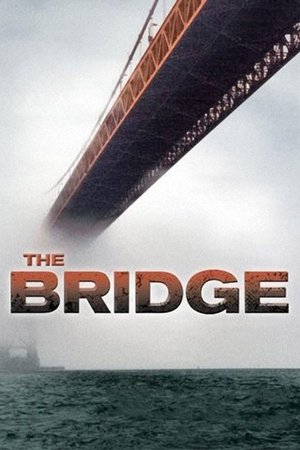 6.8
6.8The Bridge(en)
The Bridge is a controversial documentary that shows people jumping to their death from the Golden Gate Bridge in San Francisco - the world's most popular suicide destination. Interviews with the victims' loved ones describe their lives and mental health.
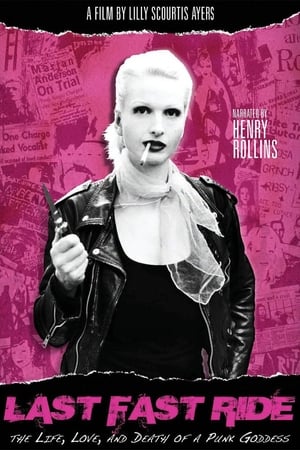 8.0
8.0Last Fast Ride: The Life, Love and Death of a Punk Goddess(en)
Henry Rollins narrates Lilly Scourtis Ayers' no-holds-barred profile of volatile Bay Area punk legend Marian Anderson, whose hypnotic beauty, devil-may-care rebellion and shocking sexual exploits onstage launched her to infamy before tragically dying of a heroin overdose at the tender age of 33.
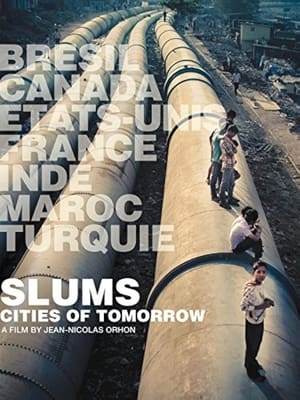 6.0
6.0Slums: Cities of Tomorrow(en)
One billion people on our planet—one in six—live in shantytowns, slums or squats. Slums: Cities of Tomorrow challenges conventional thinking to propose that slums are in fact the solution, not the problem, to urban overcrowding caused by the massive migration of people to cities. (Lynne Fernie, HotDocs)
 7.3
7.3The Times of Harvey Milk(en)
Harvey Milk was an outspoken human rights activist and one of the first openly gay U.S. politicians elected to public office; even after his assassination in 1978, he continues to inspire disenfranchised people around the world.
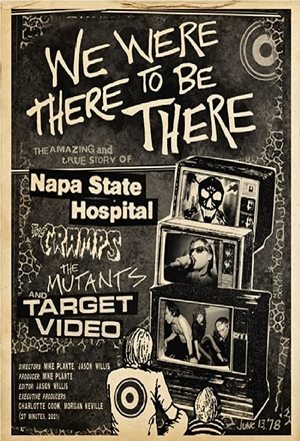 0.0
0.0We Were There to Be There(en)
On June 13, 1978, the punk bands the Cramps and the Mutants played a free show for psychiatric patients at the Napa State Hospital in California. We Were There to Be There chronicles the people, politics, and cultural currents that led to the show and its live recording.
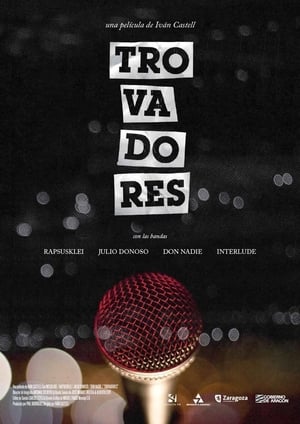 10.0
10.0Troubadours(es)
Four artists - born in the same city - dig deep to reveal their connection with music. They are modern troubadours. Music is their soul - their lyrics transmit an intimate, sincere and unconventional message. A superb portrait of underground artists.
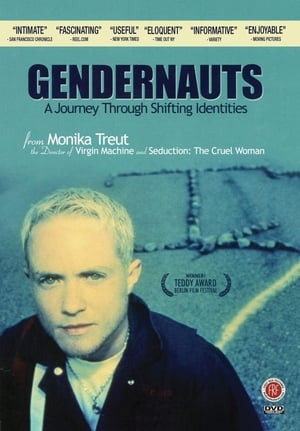 6.8
6.8Gendernauts: A Journey Through Shifting Identities(en)
Monika Treut explores the worlds and thoughts of several female to male transgendered individuals. As with Treuts first film, Jungfrauenmaschine, Gendernauts, enters a minority sector of San Fransisco culture. The characters in this film have a lot to complain about, and they do. They are people whose physical appearance (female) does not match their inner sexual identity (male). The subject is pinpointed in the film independant of sexual orientation. Leave your conservative hats at the door, this is going to need your special attention.
Dragan Wende - West Berlin(de)
Dragan Wende has lived in Berlin since the '70s and has seen the city change through the years. His nephew comes to live with him as Dragan remembers the better days he lived as a Yugoslavian immigrant in a divided city.
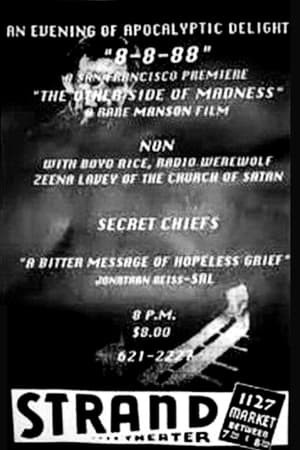 0.0
0.08-8-88 Church of Satan Mansonite Rally(en)
On August 8, 1988, the world’s first and largest Satanic rally took place. Ripped from a video featuring Satanist talking about creating a New World Order and killing off the masses. The 8-8-88 ritual was conducted right at the heart of the Satanic Panic. The goal, further exploit and feed upon the energies produced by the fears of the ignorant general public and media. It was shown to a sold-out crowd of degenerates promising them, “A Bitter Message of Hopeless Grief,” “A Nightmare of TERROR!” and “An Evening of Apocalyptic Delight!”
 3.8
3.8Mind Games - The Experiment(en)
Can exercise sharpen the brightest minds? In this ground-breaking experiment, four world-class gamers, competing in eSports, Chess, Mahjong and Memory Games, put this to the test.
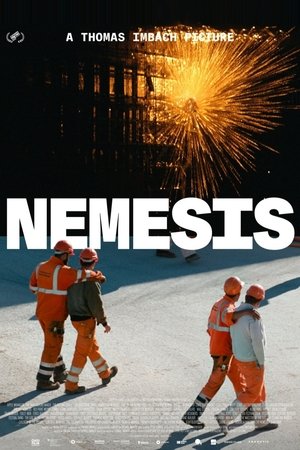 7.5
7.5Nemesis(de)
The film explores the destruction of a unique train station in Zurich and the construction of the new prison and police centre in its place. From the perspective of the filmmaker’s window, and with testimony from prisoners awaiting deportation, the film probes how we deal with the extinction of history and its replacement with total security.
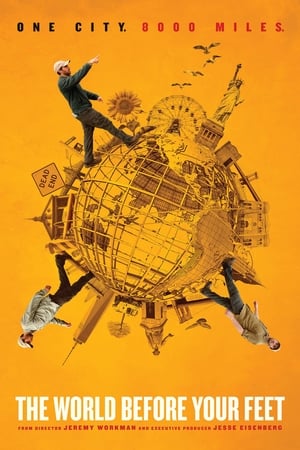 6.9
6.9The World Before Your Feet(en)
For over 6 years, Matt Green, 37, has been walking every street in New York City – a total of more than 8000 miles. The World Before Your Feet tells the story of one man’s unusual quest and the journey of discovery, humanity, and wonder that ensues.
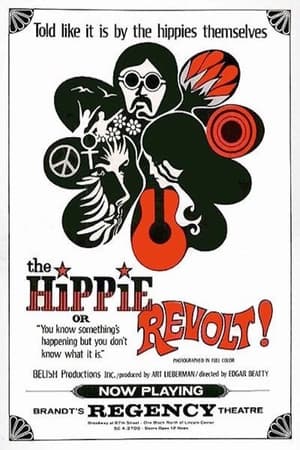 4.2
4.2Something's Happening(en)
A documentary chronicling the "youth movement" of the late '60s on Los Angeles' Sunset Strip and San Francisco's Haight-Ashbury district.
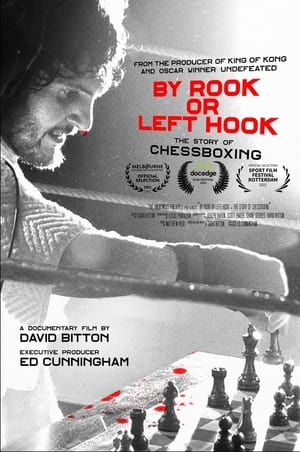 0.0
0.0By Rook Or By Left Hook(en)
In 2003, Dutch artist Iepe Rubingh became the first World Champion of Chessboxing. This brain-busting combination of alternating rounds of chess and boxing was in fact an art performance calling for more balance in a world of extremes, and the audience reaction was so electric that it inspired Rubingh to push it as a real sport. Rubingh’s methodical ability to achieve balance in the ring is put to the test outside of it when impulsive British TV Producer Tim Woolgar takes up the sport and his opposing vision for success creates a rift between them, endangering chessboxing’s future.
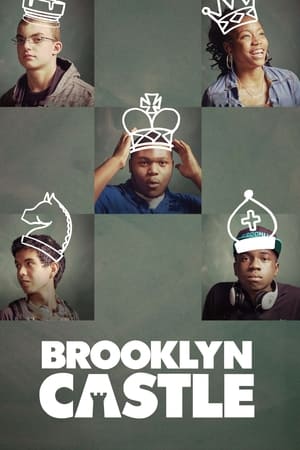 6.8
6.8Brooklyn Castle(en)
Brooklyn Castle is a documentary about I.S. 318 – an inner-city school where more than 65 percent of students are from homes with incomes below the federal poverty level – that also happens to have the best, most winning junior high school chess team in the country. (If Albert Einstein, who was rated 1800, were to join the team, he’d only rank fifth best.) Chess has transformed the school from one cited in 2003 as a “school in need of improvement” to one of New York City’s best. But a series of recession-driven public school budget cuts now threaten to undermine those hard-won successes.
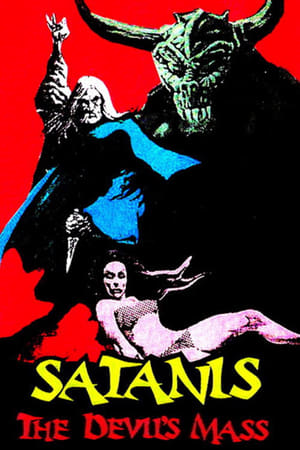 5.3
5.3Satanis: The Devil's Mass(en)
The film is a study of Anton Szandor LaVey, leader of a cult of devil worshipers in San Francisco. He and his Church of Satan are shown performing a black mass, in which a nude woman serves as an altar and a boa constrictor wraps itself around a naked witch. Newsreel footage is included in which LaVey's neighbors are interviewed about the lion which he kept in his house until complaints resulted in the animal's removal to a zoo. The ideology of the Church of Satan is discussed--guilt rejection, sexual freedom, and self-indulgence.
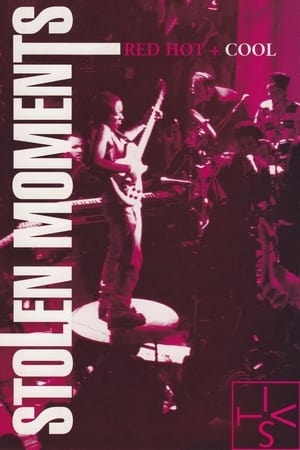 0.0
0.0Stolen Moments: Red Hot + Cool(en)
A musical documentary accompaniment to the 1994 benefit compilation album concerning AIDS in the African-American community.